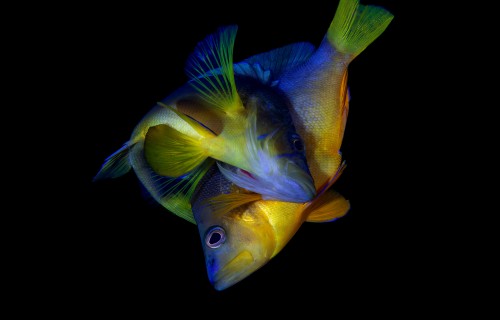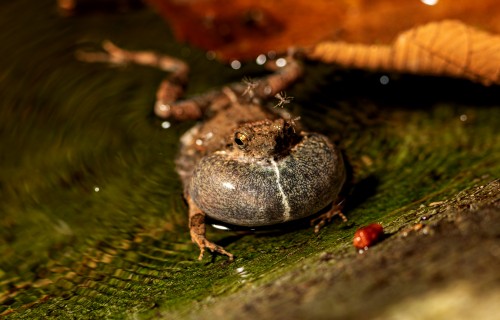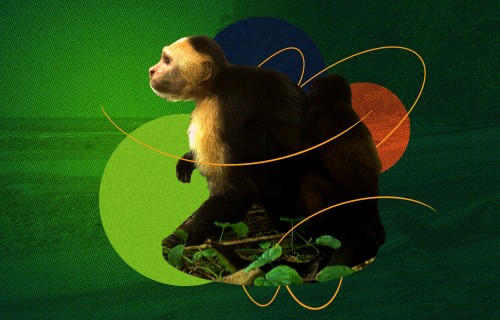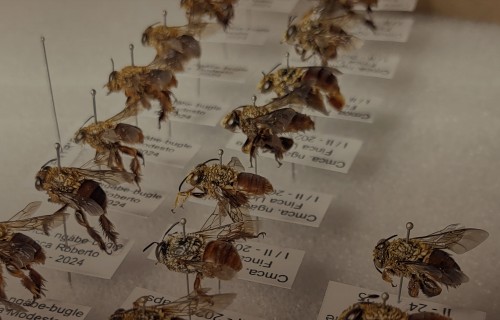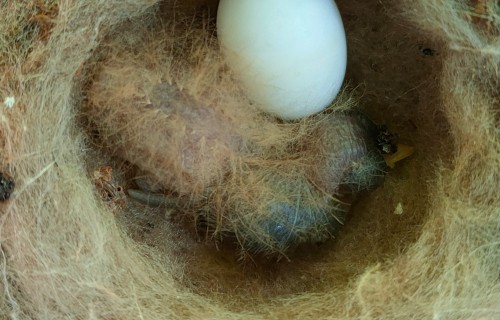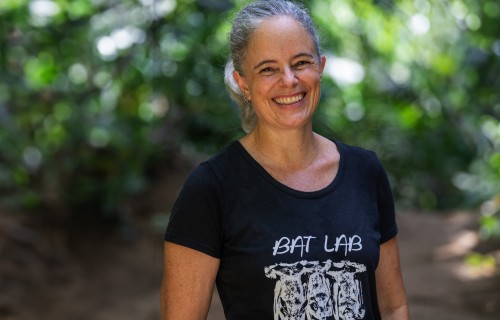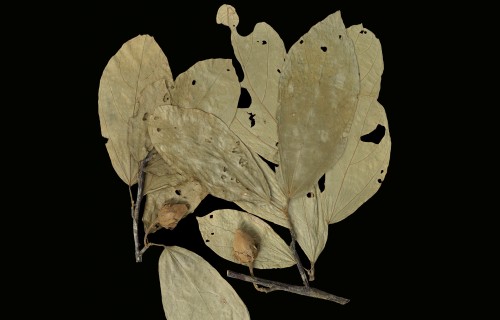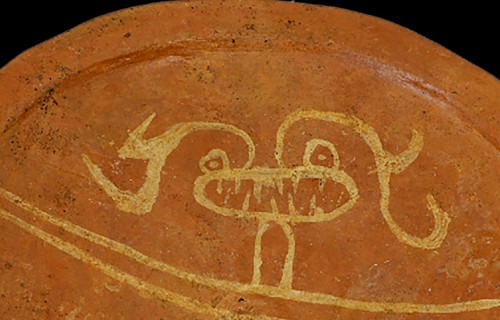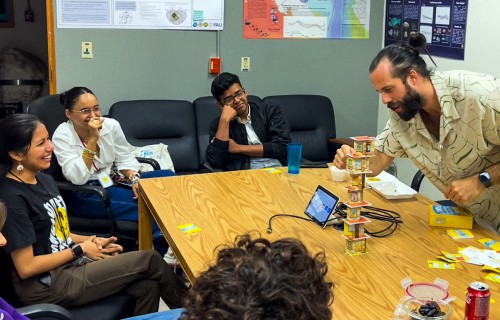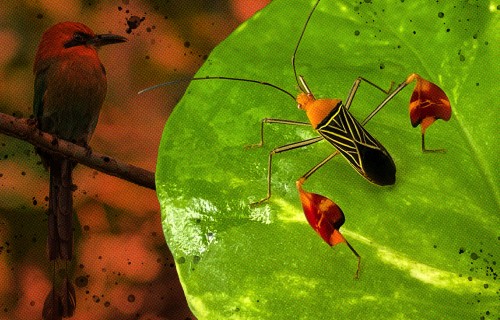A comparison of colorful hamlets
from the Caribbean challenges ideas
about how species arise

STRI staff scientist and evolutionary biologist Bill Wcislo discusses the foibles of social bees and farming ants and the evolution of their behavior in changing environments. In a time of crisis, what can we learn from these insects about their highly efficient public health care systems?
Share On
Related stories
Túngara frog tadpoles that grew up in the city developed faster but ended up being smaller.
A group of capuchin monkeys
caught on-camera with abducted
baby howler monkeys
Potential caterpillar mimicry in
White-necked Jacobin chicks
discovered in Panama.
Six new species named:
3 from Panama, 3 from Colombia
Rediscovering the Undiscovered: Revitalizing the Cerro Juan Diaz Archaeological Ceramic Collection (Presentation in Spanish)
Language and cultural “intercambios” bring the Smithsonian Tropical Research Institute community together
Indigenous marine biologist deciphers the evolution of feeding strategies of sister fish species on both sides of the isthmus of Panama
Red flags: I’m not the bug for you!
A new underwater photo studio yields pixel-scale fish color pattern data
